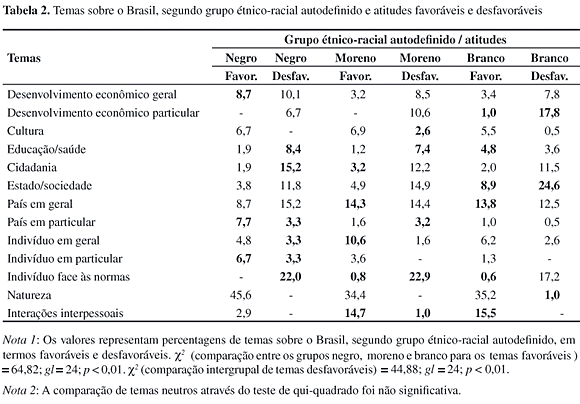This research aimed at describing social representations (S.R.) about nations, according to self-defined ethnic-racial groups. We adopted Moscovici’s theoretical referencial of S.R., in conjunction with intergroup relation theories. Secondary school students from public schools of Rio de Janeiro, self-defined as Black (n = 31), Dark-skinned (n = 88) and White (n = 100), answered a questionnaire about Brazil, USA and Arab/Muslim countries. On Brazil, White people emphasized State/Nation and interpersonal interactions; Black people, the individual and particular groups; and Dark-skinned people, individual facing social norms. Dark-skinned people showed difficulty of keeping intergroup boundaries and low social distinction. White people described the USA as a country that enhances the individual and considered Brazil more satisfactory in interpersonal terms, according to the "cordial man’s" model of Buarque de Holanda. The difficulty to represent Brazil in terms of culture indicates the lower recognition of Black and Native-American cultures in the social construction of the Brazilian society.
social representations; national groups; intergroup relations



